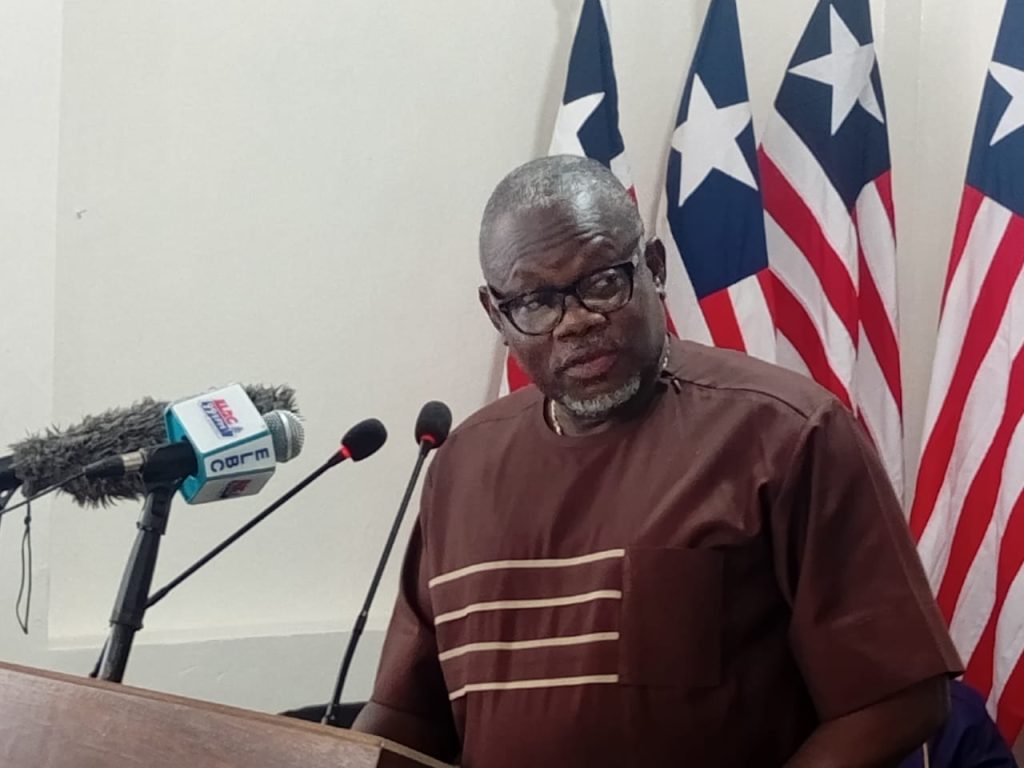The Liberian government’s recent decision to restructure petroleum pricing and reduce terminal fees has sparked a heated debate, with Information Minister Jerolinmek Matthew Piah defending the move against criticism from lawmakers like Representative Musa Hassan Bility and Jacob Cheategba Debee. Minister Piah characterized the opposition as self-serving, suggesting that these lawmakers are more concerned with protecting their personal financial interests derived from the existing system than with the overall benefit to the Liberian people. He pointed to their public displays of wealth as evidence of their potential profiteering from the previous fee structure, arguing that the government’s priority is to ensure resources benefit the entire nation, not just a select few. This clash highlights the tension between vested interests and the government’s push for reforms in the petroleum sector.
At the heart of the controversy is President Joseph Boakai’s September 3rd directive, which introduced a revised petroleum pricing structure aimed at lowering fuel costs for consumers and generating revenue for crucial infrastructure projects, particularly the Road Fund. This directive effectively reduces terminal fees on petroleum products, a move that Minister Piah argues will have far-reaching positive consequences for Liberia. He emphasized that the restructuring will ensure consistent fuel availability across the country, stabilize prices, reduce reliance on private importers, and enhance government oversight and transparency within the petroleum sector. These reforms are intended to bring greater stability and accountability to a vital sector of the Liberian economy.
Representatives Bility and Debee, however, contend that the new pricing structure diverts funds from Liberian-owned terminal operators to the Liberia Petroleum Refinery Corporation (LPRC), potentially jeopardizing their viability and concentrating power within the LPRC. They also argue that the initiative violates the Public Financial Management (PFM) Act of 2009, which dictates how public finances, including revenue collection by state-owned enterprises, are managed. Their concerns center on the potential for mismanagement and lack of proper oversight under the new structure. This opposition frames the debate as a matter of protecting Liberian businesses and adhering to established financial regulations.
Minister Piah countered these arguments by asserting that the lawmakers are attempting to garner public sympathy while ignoring the broader benefits of the reform. He highlighted the introduction of two new levies within the revised pricing system, designed to support social programs and fund road construction at the county level. He projected that these levies will generate approximately $20 million annually, with each of Liberia’s 15 counties receiving approximately $700,000 per year for road development. This, according to Minister Piah, demonstrates the government’s commitment to using the generated revenue for tangible improvements that will benefit the entire population.
The Minister further underscored the government’s commitment to infrastructure development by highlighting the rehabilitation and expansion of the Ganta oil terminal. This project, with an investment of $7 to $8 million, aims to serve Nimba, Bong, Lofa, and southeastern counties in Liberia, as well as parts of Guinea and Ivory Coast. Minister Piah emphasized that this initiative will strengthen regional fuel supply security, reduce reliance on Monrovia as the sole distribution hub, create jobs, enhance market efficiency, and promote cross-border trade. This investment, he argued, showcases the government’s strategic vision for regional development and economic integration.
Central to the government’s justification for the reforms is a study conducted prior to the President’s directive, which revealed that Liberian storage operators were charging as much as 35 cents per gallon. Minister Piah contrasted this with significantly lower charges in neighboring countries, often calculated on a per-metric-ton basis. The new structure reduces storage fees to 5 cents per gallon, a change that Minister Piah believes is a necessary correction to an inflated pricing system. He reiterated his stance against individuals profiting excessively from national resources, emphasizing that the government is committed to ensuring a fairer and more equitable distribution of benefits derived from the petroleum sector. The government’s direct importation of 10,000 tons of gasoline and 5,000 tons of diesel, the first in 40 years, further underscores their commitment to taking control of the petroleum supply chain and optimizing costs for the benefit of the Liberian people.


